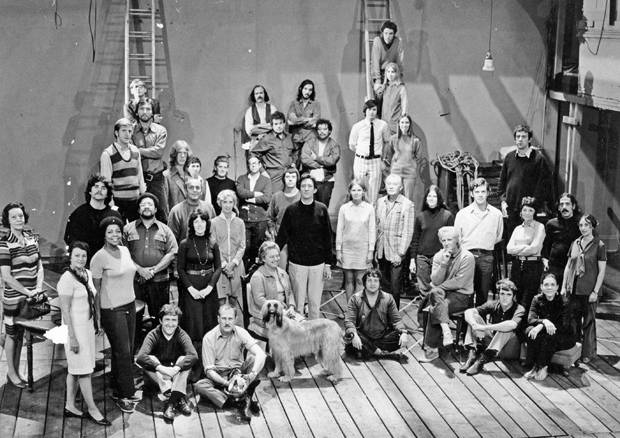Imperious, tenacious, and implacable, even while warm, gracious, and inviting, Marion Simon was a fascinating woman, all the more intriguing and attractive for the seemingly contradictory facets of her robust personality.
She could be guarded and enigmatic, ebullient and vivacious, sullen, rhapsodic, enraged, and reflective, all, it would seem, within the short span of an hour. The assertive sound of her footfall preceded her, a sort of prelude to the mood she was in. God help you if you caused that cloud to pass before the sun of her disposition.
Her wit cut like a scalpel and bestowed like a queen. She terrified me, a terror that was almost painful, and made all the worse by my desire to be welcomed into the kingdom of her good graces. I came quickly to admire her prodigious reading, her keen eye, and her fiery devotion to art, family, and a wonderful community of friends. So I began by being frightened of her, and I grew to love her and to treasure her approval.

That’s Marion Simon, seated and smiling by the Afghan Hound. Then Trinity Square Repertory Company, its performance home was in the basement of Trinity United Methodist Church, on Broad Street, at Trinity Square, in Providence. It was a wonderful space. Nonnie and I saw our first production together there, Troilus and Cressida, on our first date in the fall of 1971. Directed by Adrian Hall (standing to Marion’s left) and designed by Eugene Lee, the production bore the distinguishing characteristics of the company’s then-assured identity: dialogue delivered in conversational American speech, active disregard for the illusory “fourth wall” between actors and audience, free use of multimedia, a celebratory delight in sexuality, costumes that leaped across centuries, and devotion to the joyful moment. Laughter abounded. The actors spoke to us and engaged us, not as adversaries on either side of footlights but as participants in the same artistic revel. During the battle scenes, the actors prowled the aisles and ascended the scaffolds and catwalks, flinging sponges soaked in red liquid to inflict bloody wounds. This little world became Trinity Repertory Company after its move, in 1973, to the former Majestic Theater, on Washington Street. I was fortunate to work there from 1984 to 1988.
I found later that it was she who was responsible for my being hired at Trinity Rep, in 1984, to join a splendid and spirited team in the Marketing Department, where I thrived as a writer. I will never forget handing her my first press release. She scanned it, returned it with a dismissive flick of the wrist, and said, “Why we keep hiring people who insist upon reinventing the wheel, I don’t know.”
In time, I earned her praise, which I wore, and still wear, as a badge of honor. And I will never forget a moment that we shared by the lobby stairs one day, as we watched the first snow of winter fall on Washington Street. A homeless man struggled to cross. No coat, no hat, no gloves. He turned down Aborn Street and disappeared.
“Have you read ‘Flood,’ by Red Warren?” she asked. I hadn’t. She paused for a moment. “It’s worth reading,” she said. “There’s a wonderful line: ‘There are always cracks. Even in a loving family. The question is just how much humanness you can get over the cracks. To hold things together.’ ”
Thank you, Marion.

In 2012, on the website of the New York-based League of Professional Theatre Women she wrote of herself: “At age 90, my greatest inspiration comes from waking up and facing the day. I loved Providence but am happiest in NYC and grateful to LPTW for new colleagues and friends. My life in the theatre began in the ‘60’s with a production of Harold Pinter’s Caretaker, directed by my mentor, Adrian Hall, with Richard Kneeland, William Cain and J.Frank Lucas. I contacted then-Managing Director Donald Schoenbaum to see if I could be useful.”
